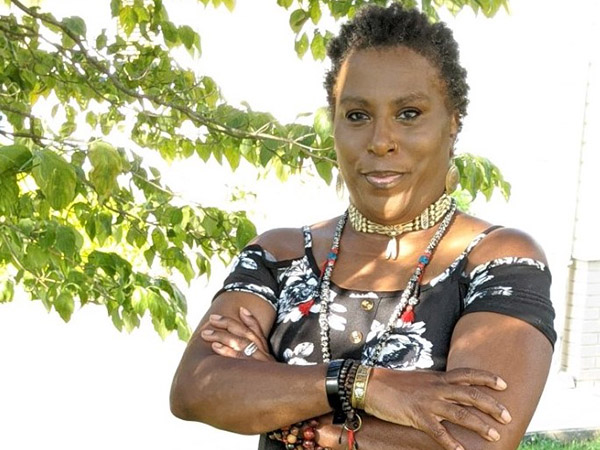Denying Blackness: The Enduring Legacy of the "Science" of Racial Purity in the Federal Recognition Process
November 14, 2024

On Native Ground Lecture Series
Start time: 4:00 p.m.
End time: 6:00 p.m
Location: MCALC 1107 (1000 Floyd Ave, Richmond, VA)
Co-organizer: Division of Inclusive Excellence
Description
On January 30, 2018, President Trump signed H.R. 984, the Thomasina E. Jordan Indian Tribes of Virginia Federal Recognition Act of 2017, which granted federal recognition to six Virginia state-recognized Native American tribes via a special act of Congress rather than the usual BIA process, through which the Pamunkey Tribe gained recognition in 2016. The recognition meant that members of all seven tribes had achieved sovereign (albeit limited) status. Virginia Senators Tim Kaine and Mark Warner hailed the bill as having “righted a historical wrong.” Yet the story of federal recognition for seven Virginia tribes also shows that at least one particular “historical wrong” remains unaddressed. In fact, their story illuminates a central problem with the way Indian recognition is managed on the state and federal level, as it is based on a problematic idea of racial purity. Dr. Coleman's presentation will focus on Virginia's 1924 Racial Integrity Act and its continuing legacy in the recognition process today.
About the Speaker
Dr. Arica L. Coleman is an award-winning, nationally recognized American historian and independent scholar whose research focuses on comparative ethnic studies and racial formation and identity issues. Her additional research interests include indigeneity, immigration/migration, interracial relations, mixed-race identity, race and gender intersections, sexuality, the politics of race and science, and popular culture.
From 2006–2014, Dr. Coleman held faculty appointments in Africana Studies at Widener University, the University of Delaware, and Johns Hopkins University. In 2014, she was lead faculty facilitator for the UNCF/Mellon Faculty Fellows Domestic Summer Institute held at the University of New Mexico. The seminar titled In Search of Home: An Interdisciplinary Exploration of the Shared Experiences of Indigenous and Immigrant Populations in Colonized Spaces was developed in collaboration with Drs. Cynthia Neal Spence and Beverly Guy Sheftall of UNCF/Mellon, UNM, The Indian Pueblo Cultural Center, and the Laguna Pueblo Nation.
She has lectured and presented papers at academic and public venues, including The Organization of American Historians, The American Historical Association, The Association for the Study of African American Life and History, MIT’s Conference on Race and Science, The National Holocaust Museum, The Virginia Forum, The Woodrow Wilson House, and many others.
She has also lent her expertise on matters of race and ethnicity to the Virginia General Assembly House Rules Committee, NPR, Indian Country Today, History News Network, L.A. Progressive, The Female View Broadcast, Native Trailblazers Blog Radio, CTV (Canada News), the Washington Post, Time Magazine, the North Star Newsletter, the Atlantic Live, Cheddar TV, Vox's Today Explained, and IHeart Radio's Something Good Program. Her groundbreaking work on the Loving v. Virginia case was cited by The New York Times, The Root, and MadameNoir.
Dr. Coleman's first book, That the Blood Stay Pure: African Americans, Native Americans and the Predicament of Race and Identity in Virginia (Indiana University Press, 2013), a Choice Outstanding Academic Title for 2014, traces the history and legacy of Virginia’s effort to maintain racial purity and the consequences of this almost four hundred year effort on African American – Native American relations and kinship bonds in the Commonwealth. Dr. Coleman’s second book The Matter of Black Lives: Womanist Prose (SistahGurl Press in 2021) is a collection of previously published essays from the years 2000-2020 (with postscripts and a Coda), which provides historical context for current issues of the day.
Dr. Coleman's current project titled Of Waterways, Slaves, and Runaways: A Story of Black Lives in the United States and Canada, 1796-1965, forthcoming from Palgrave Macmillan, centers her family history within the larger context of United States and Canadian political history.